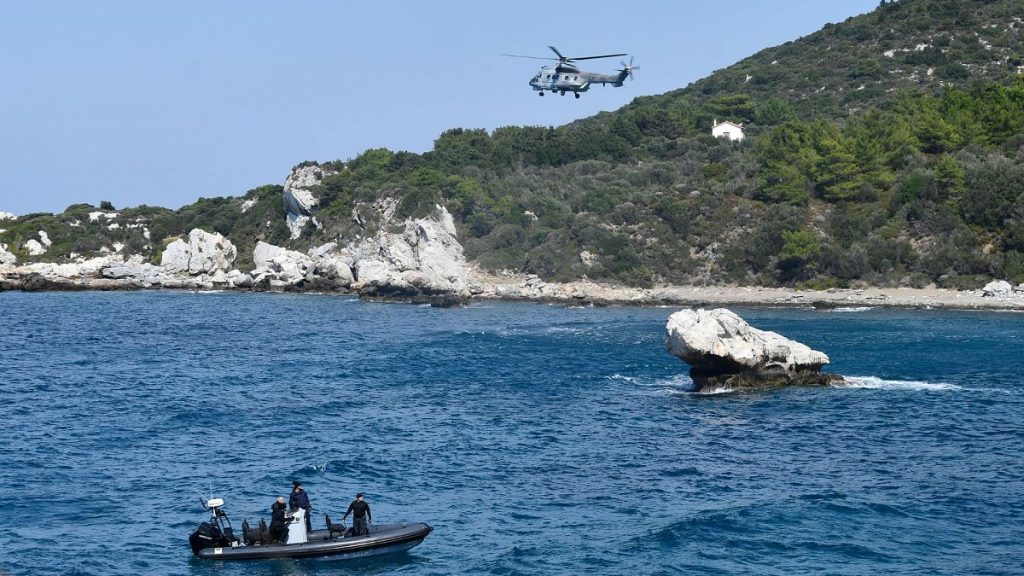The situation surrounding migrant crossings in the Mediterranean is becoming increasingly perilous as the winter season approaches. The Greek migration minister, Nikos Panagiotopoulos, expressed grave concerns about the escalating dangers associated with these crossings, which are being exacerbated by harsh winter weather and ongoing geopolitical issues in the region. Recent incidents illustrate the urgent nature of this crisis; on Thursday, a boat carrying migrants ran aground on the rocky shores of Samos, resulting in the tragic deaths of four individuals, including two children. Although sixteen individuals were rescued, many details regarding the total number of passengers remain unknown, prompting search-and-rescue operations coordinated by the Greek coast guard. These incidents highlight the heightened risk that migrants face as they attempt to flee chaotic and unstable conditions in their home countries.
The Worsening conditions on the Mediterranean route are not isolated occurrences but part of a broader trend linked to ongoing conflicts, particularly in the Middle East and parts of Africa. Minister Panagiotopoulos pointed out that the geopolitical landscape has contributed to an influx of migrants seeking safer havens in Europe. Notably, Samos and its neighboring islands in the Aegean Sea are emerging as significant points of entry for these migrants. These locales have seen a marked increase in arrivals, largely attributed to the persistent violence and instability that characterize regions such as Syria and Afghanistan. Consequently, the Greek government is compelled to respond to these changing dynamics, as continued conflict and fluctuating migratory patterns necessitate a revamped approach to asylum seekers and border management.
In light of these developments, the Greek government is looking to enhance its border security measures. Minister Panagiotopoulos has announced intentions to secure funding for the construction of border walls amidst Greece’s EU presidency, which will begin in January. This initiative is intended to bolster Greece’s ability to manage and control the flow of migrants, aiming to reduce illegal crossings and provide better oversight of its borders. However, while these measures may provide some level of security, they also raise significant questions about the treatment and rights of migrants, as well as the ethics of such containment strategies. The potential implications of hardening borders in the context of humanitarian crises warrant careful consideration from both policymakers and advocacy groups.
In conjunction with these border control efforts, Greek law enforcement has taken steps to combat human trafficking and smuggling rings that exploit vulnerable migrants. In a recent operation, nine individuals were apprehended for their roles in facilitating illegal travel for those seeking to enter Europe. This particular group allegedly provided essential services to migrants, including housing, clothing, and forged documents, before attempting to escort them to airports for onward travel. The costs for these services reportedly ranged from €3,000 to €5,000 per person, indicating a lucrative yet dangerous business model that thrives amidst the chaos of migration. This crackdown reflects a broader commitment by the Greek authorities to address the complexities of human smuggling, which has become intertwined with the larger migration narrative.
The complexities of the situation are not solely due to external factors but are also exacerbated by internal policy decisions and the EU’s handling of migration as a collective issue. The ongoing challenges of accommodating and processing increasing numbers of asylum seekers put considerable strain on Greece’s resources and infrastructure, particularly on its islands that are often the first point of contact for migrants arriving via dangerous sea routes. As conditions worsen and winter approaches, many humanitarian organizations express alarm at the potential for more tragedies, emphasizing the need for comprehensive solutions that include not only enforcement actions but also humanitarian support and international cooperation.
As this crisis unfolds, the plight of these vulnerable individuals becomes a reflective mirror of broader global crises that drive migration, including political instability, violence, and economic hardship. While Greek officials are wrestling with immediate responses to the situation, there is a crucial need to address the root causes of migration. Solutions must involve diplomatic engagement and humanitarian assistance in the migrants’ home countries, ensuring that individuals do not feel compelled to undertake perilous journeys through the Mediterranean. The interplay between safeguarding borders and addressing humanitarian needs presents a formidable challenge, requiring a balanced approach that addresses both the immediate safety of migrants and the longer-term issues that precipitate their movements.














